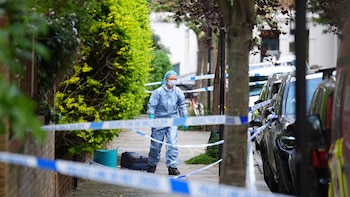
(ATR) Wholesale changes mark the 2019 roster of commissions released by the Association of National Olympic Committees.
Of the 74 commission members named on the list, more than 60 are new assignments. A total of eight new chairs will lead the 12 commissions, four more than the previous roster. While the number of commissions has increased, total membership has dropped from 90 to 74.That will change when the membership of the Youth Commission is named. Sebastian Coe will remain the chair.
Notable addition to the ANOC Commission roster is the Ethics Commission, chaired by Spanish attorney José Pinto Sala, a member of the Court of Arbitration for Sport. Sala, along with the six other members of the panel were approved at the ANOC General Assembly last November in Tokyo.
An Electoral Commission chaired by retired IOC member in Australia Kevan Gosper has been added. The Modernization Commission he had led has been disbanded.
The Gender Equity Commission is another new panel for 2019 led by IOC member in Jordan Prince Faisal Al-Hussein.
Russian Olympic Committee President Stanislav Pozdnyakov takes charge of the new Culture and Education Commission.
Susanne Lyons, the new U.S. Olympic Committee chair, takes over from her predecessor Larry Probst, as head of the Marketing and New Sources of Finance Commission.
Chris Milne of New Zealand is named to chair the Medical Commission. He takes over from Robin Mitchell who is now serving as acting president of ANOC.
Mitchell holds that title while duly elected ANOC president Sheikh Ahmad waits for a trial in Switzerland on charges he created false evidence in a lawsuit unrelated to his Olympic functions.
"We are delighted to announce the composition of the 2019 Commissions," says Mitchell in a statement.
"There is so much experience and knowledge throughout the membership and we are excited to see what they come up with over the course of this year. ANOC’s ultimate mission is to protect and advance the collective interests of the NOCs and the Commissions are critical in ensuring that ANOC is constantly self-assessing where it can improve and determining the areas where it can enhance its support for NOCs," he said.
Reported by Ed Hula.
Últimas Noticias
Utah’s Olympic venues an integral part of the equation as Salt Lake City seeks a Winter Games encore
Utah Olympic Legacy Foundation chief of sport development Luke Bodensteiner says there is a “real urgency to make this happen in 2030”. He discusses the mission of the non-profit organization, the legacy from the 2002 Winter Games and future ambitions.

IOC president tells Olympic Movement “we will again have safe and secure Olympic Games” in Beijing
Thomas Bach, in an open letter on Friday, also thanked stakeholders for their “unprecedented” efforts to make Tokyo 2020 a success despite the pandemic.

Boxing’s place in the Olympics remains in peril as IOC still unhappy with the state of AIBA’s reform efforts
The IOC says issues concerning governance, finance, and refereeing and judging must be sorted out to its satisfaction. AIBA says it’s confident that will happen and the federation will be reinstated.

IOC president details Olympic community efforts to get Afghans out of danger after Taliban return to power
Thomas Bach says the Afghanistan NOC remains under IOC recognition, noting that the current leadership was democratically elected in 2019. But he says the IOC will be monitoring what happens in the future. The story had been revealed on August 31 in an article by Miguel Hernandez in Around the Rings

North Korea suspended by IOC for failing to participate in Tokyo though its athletes could still take part in Beijing 2022
Playbooks for Beijing 2022 will ”most likely” be released in October, according to IOC President Thomas Bach.




